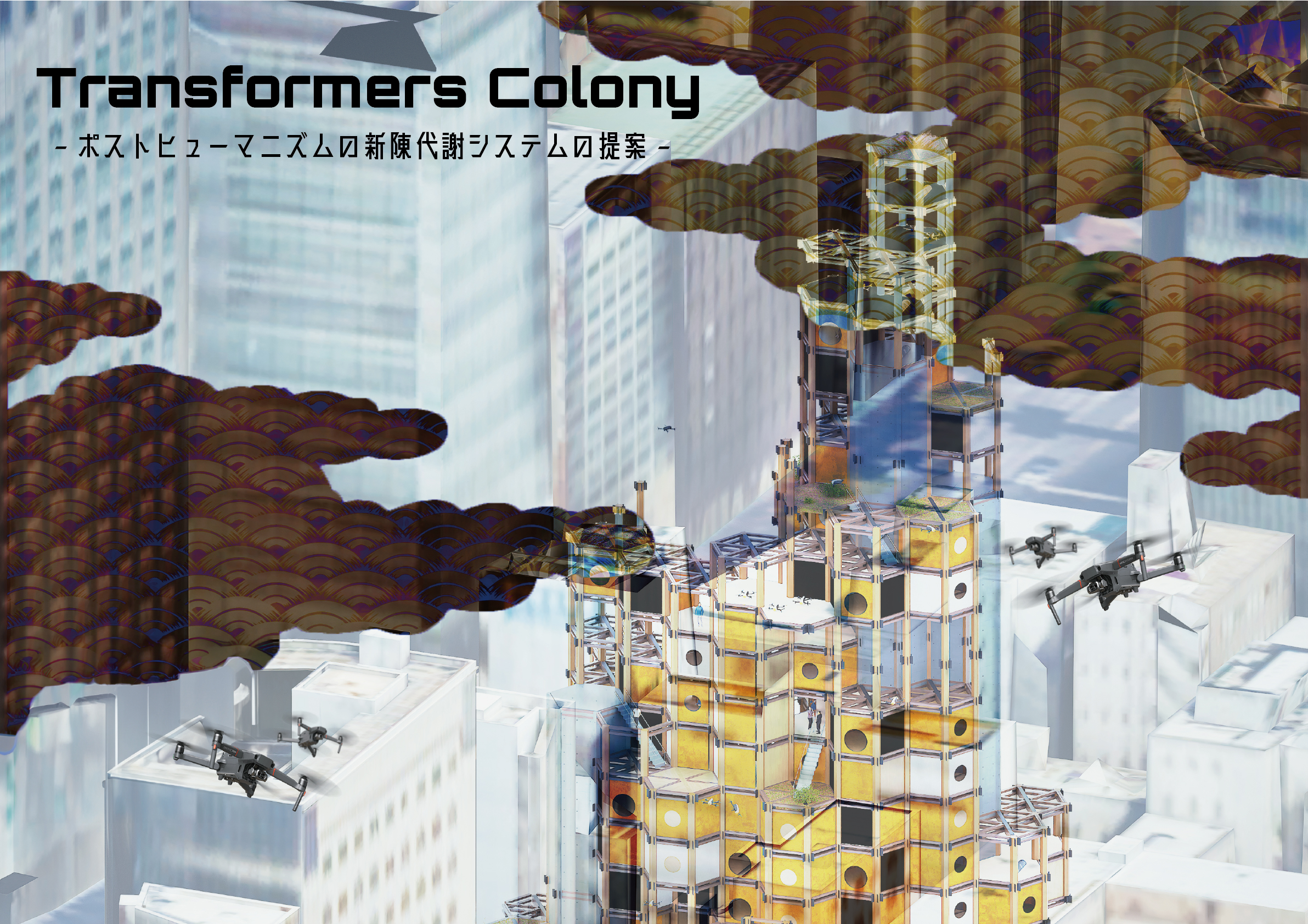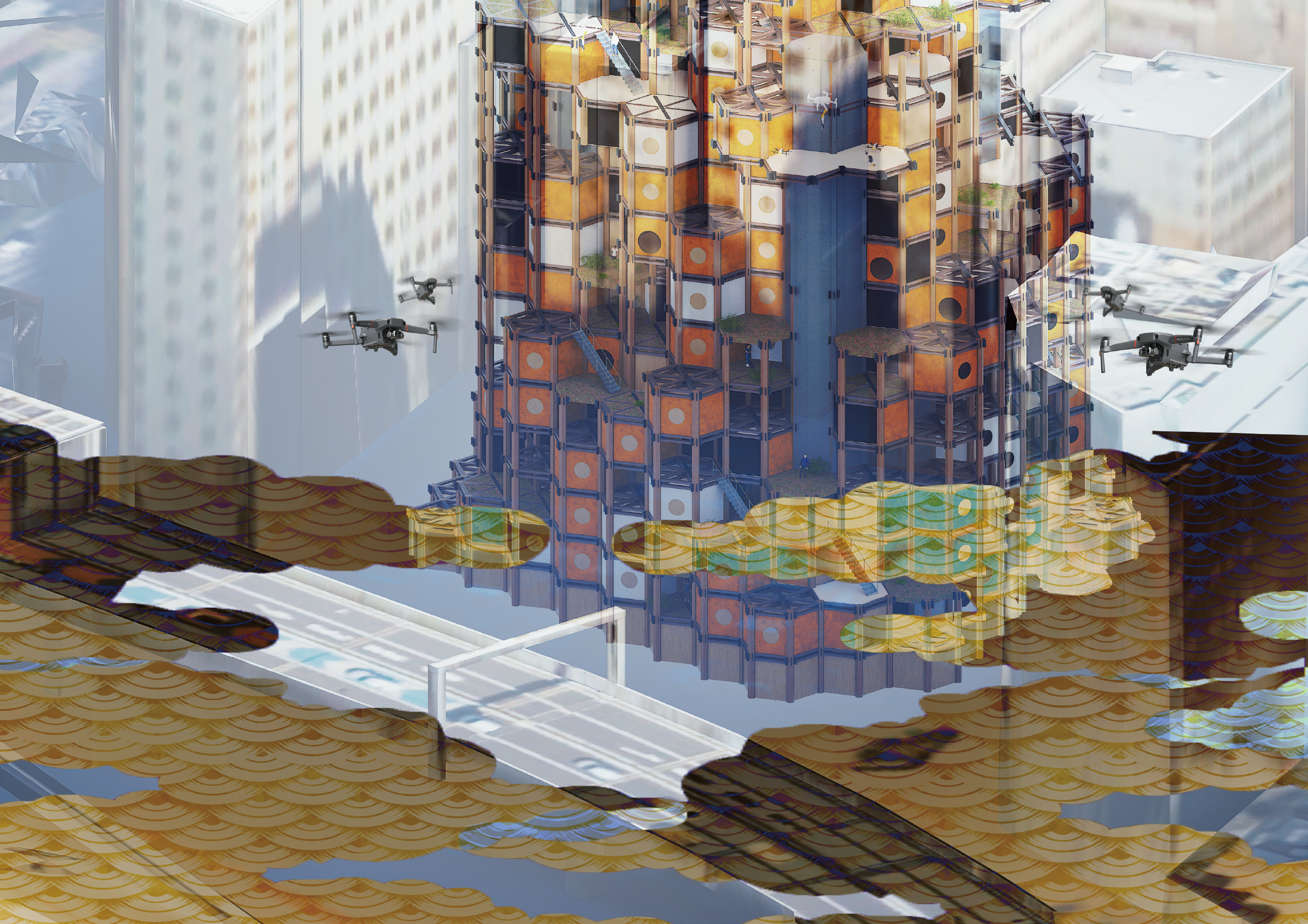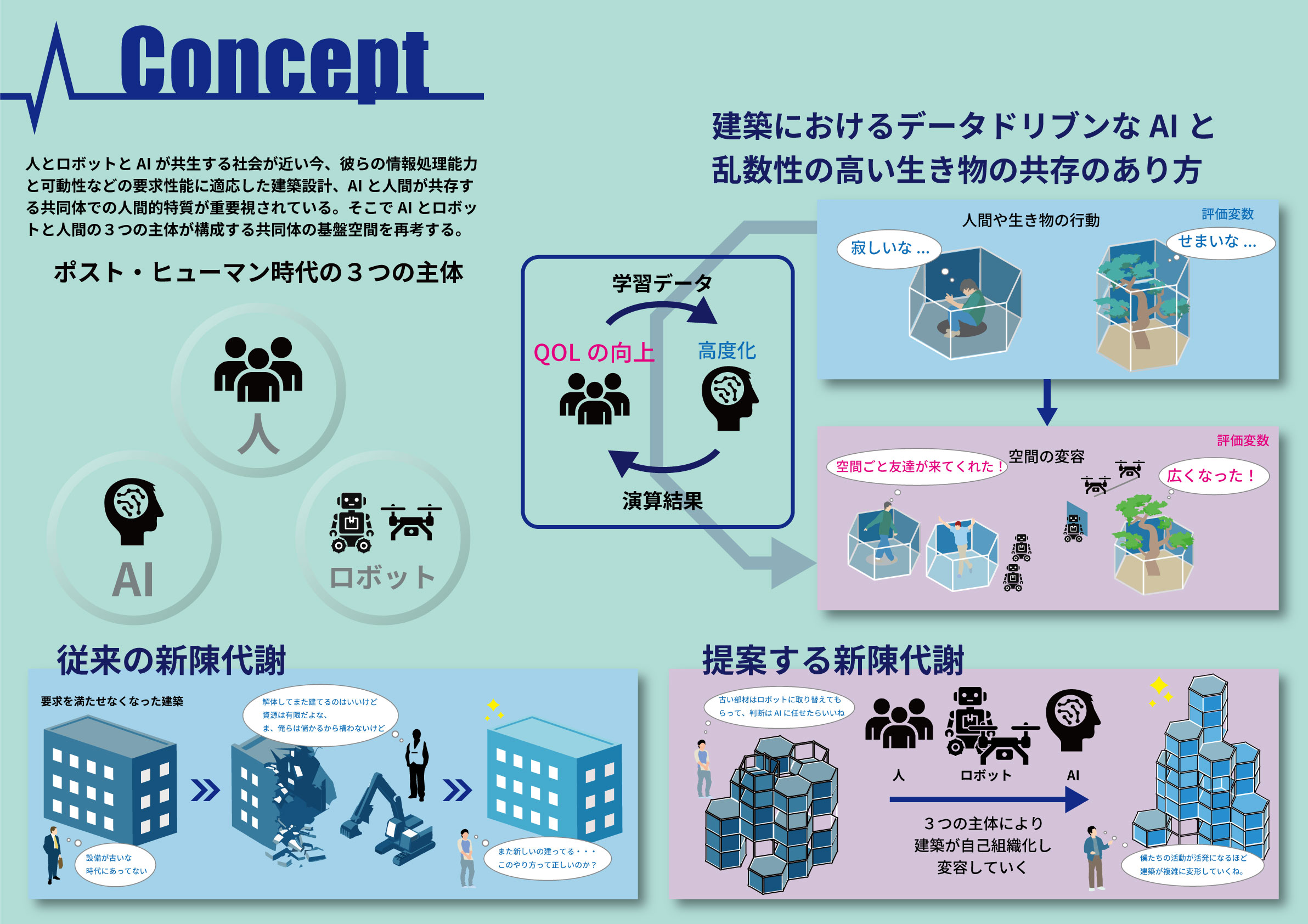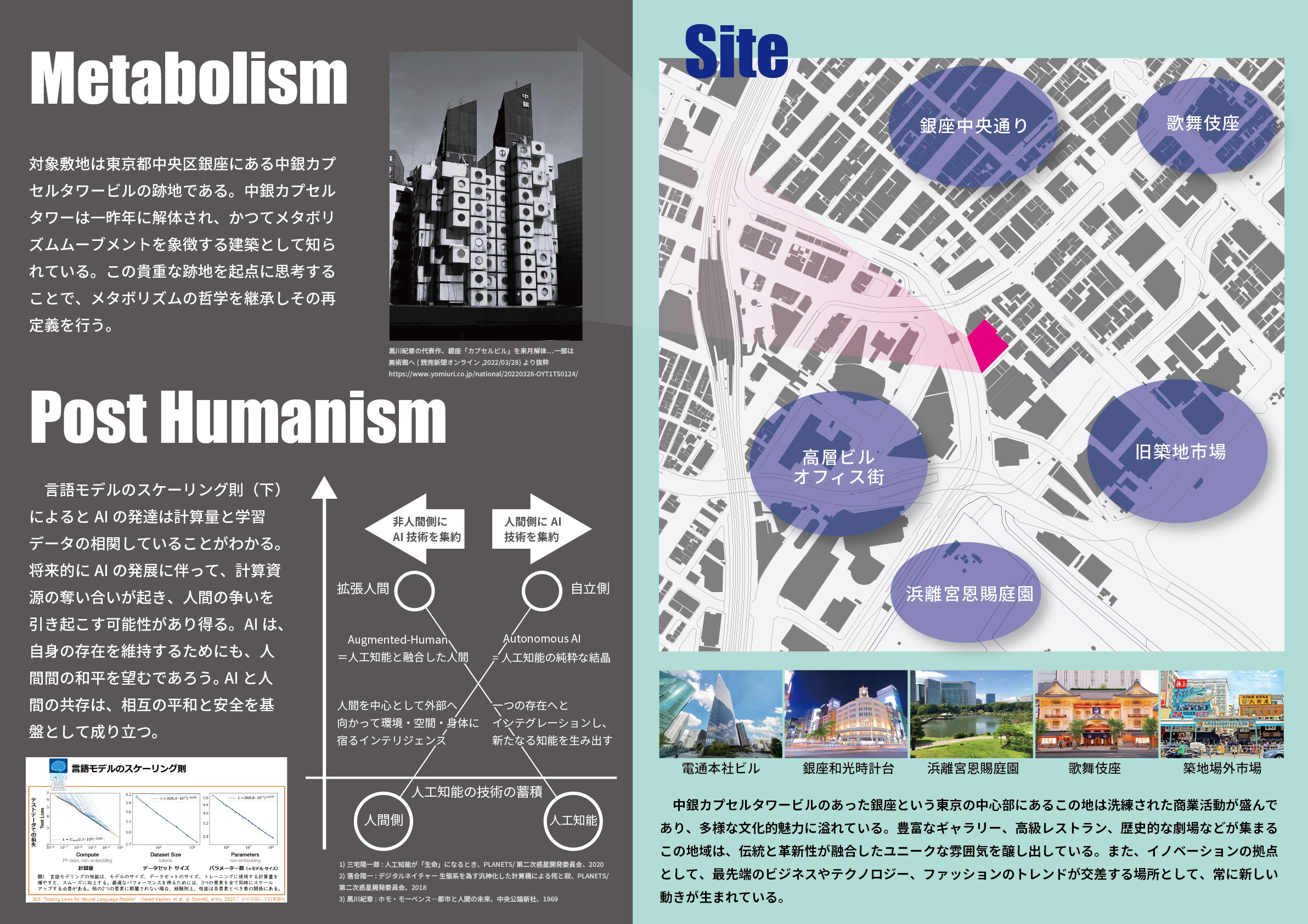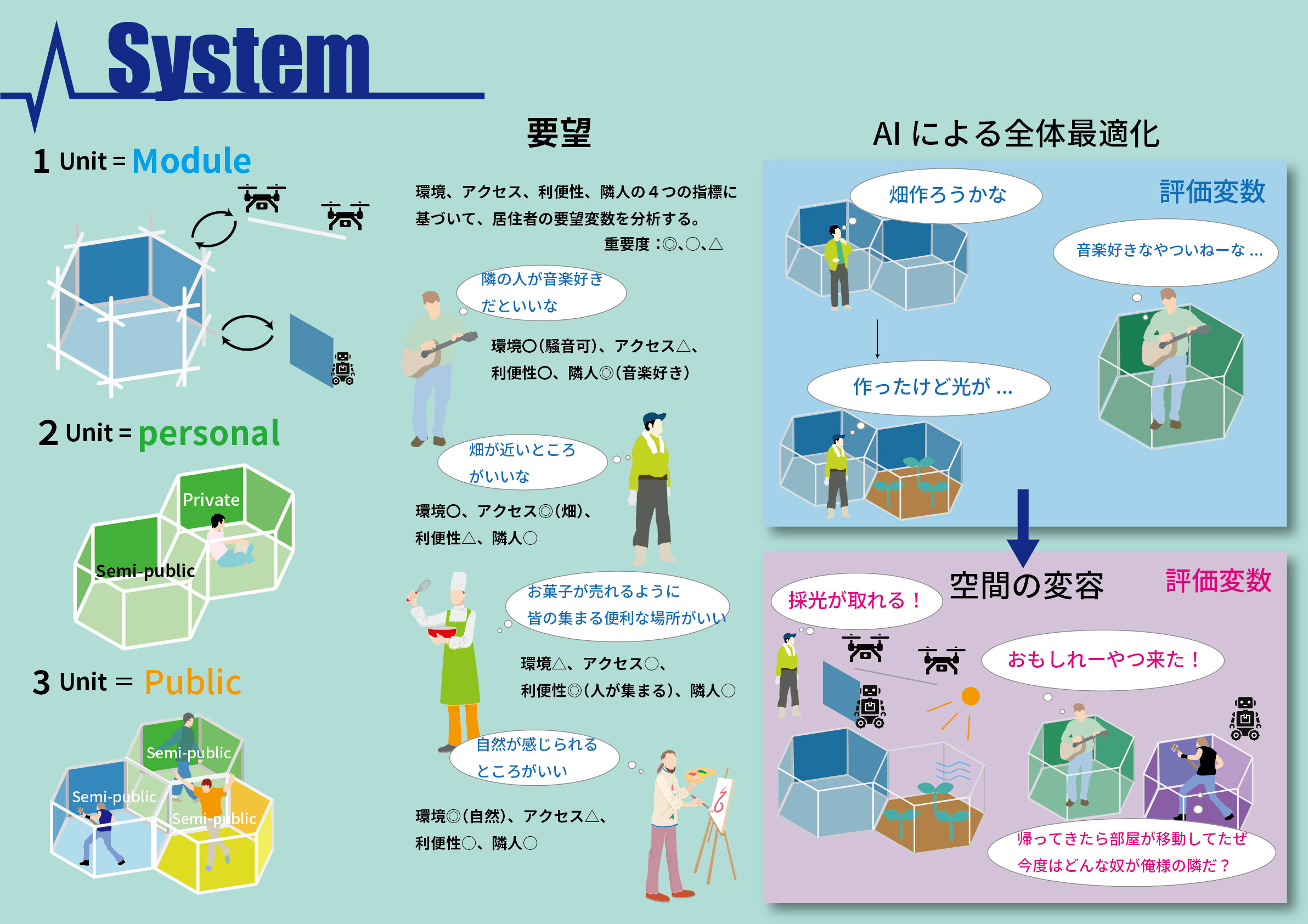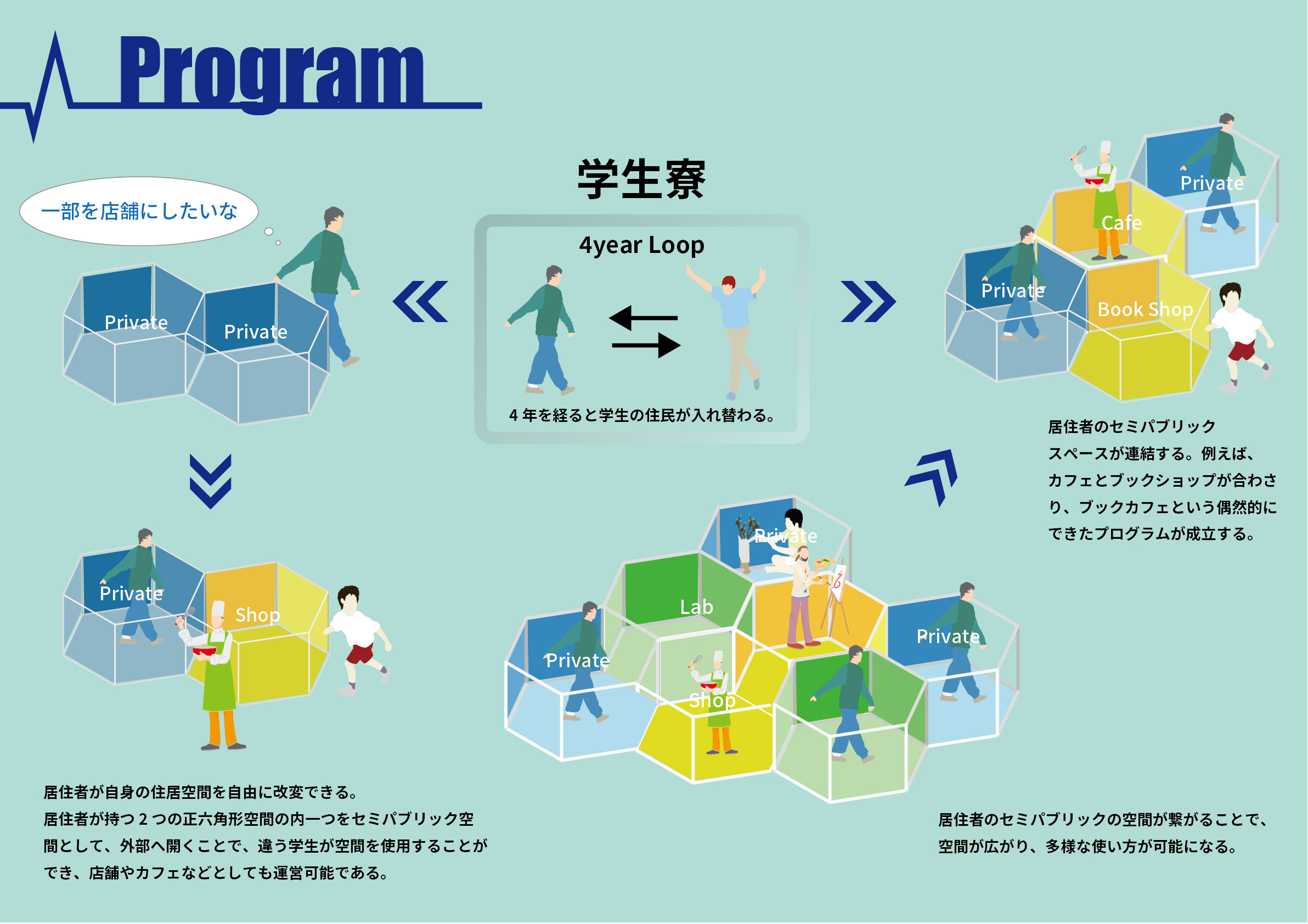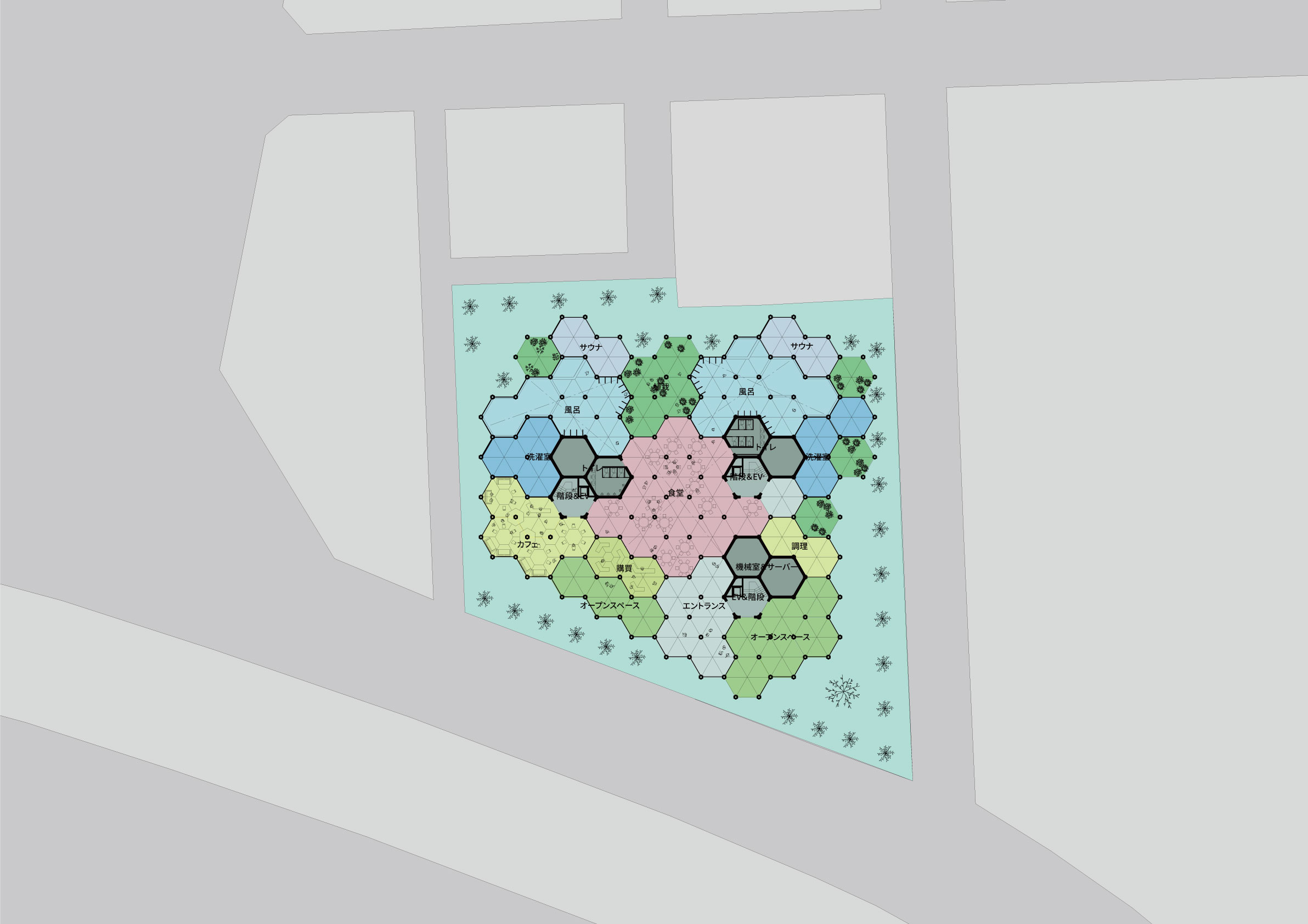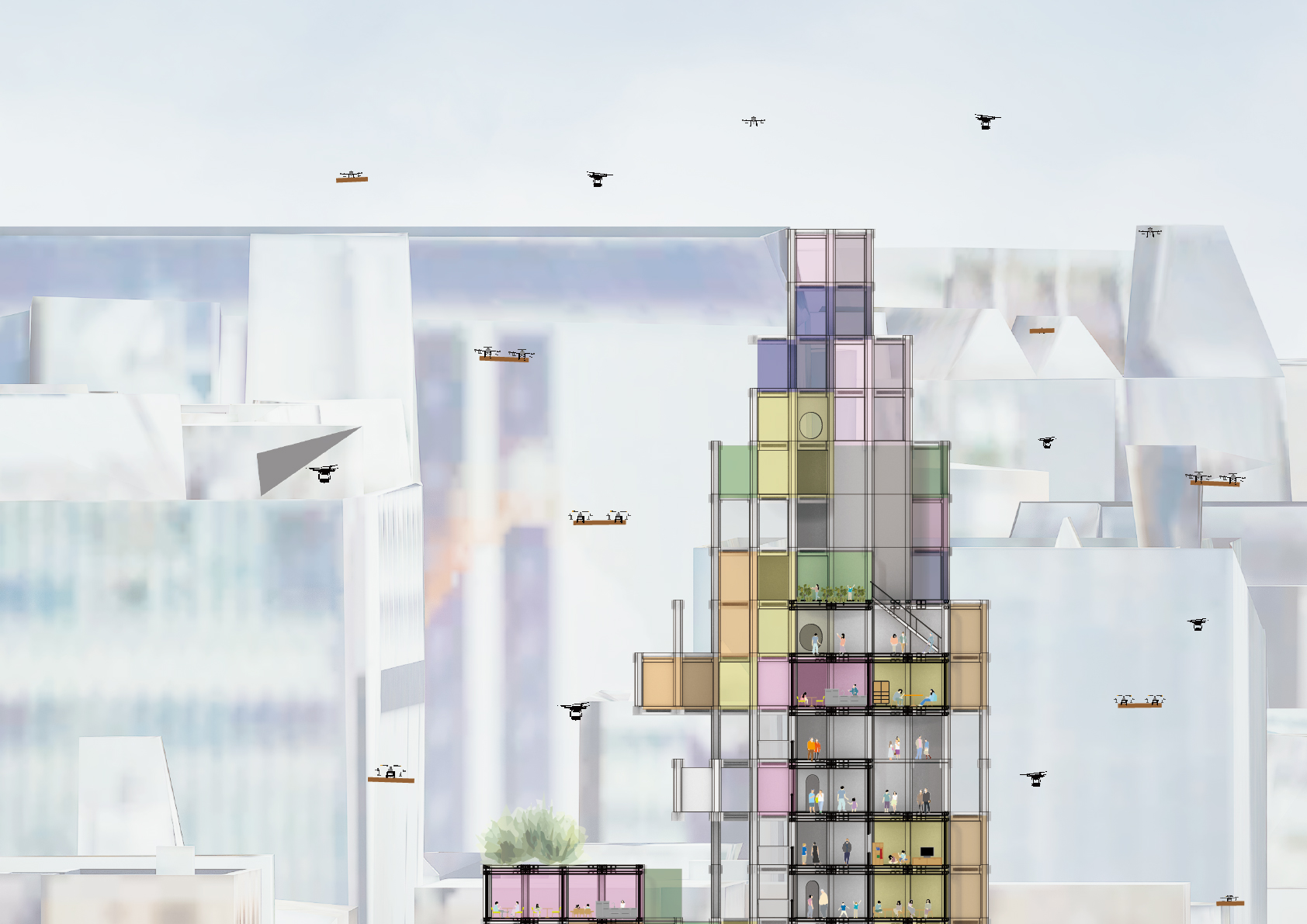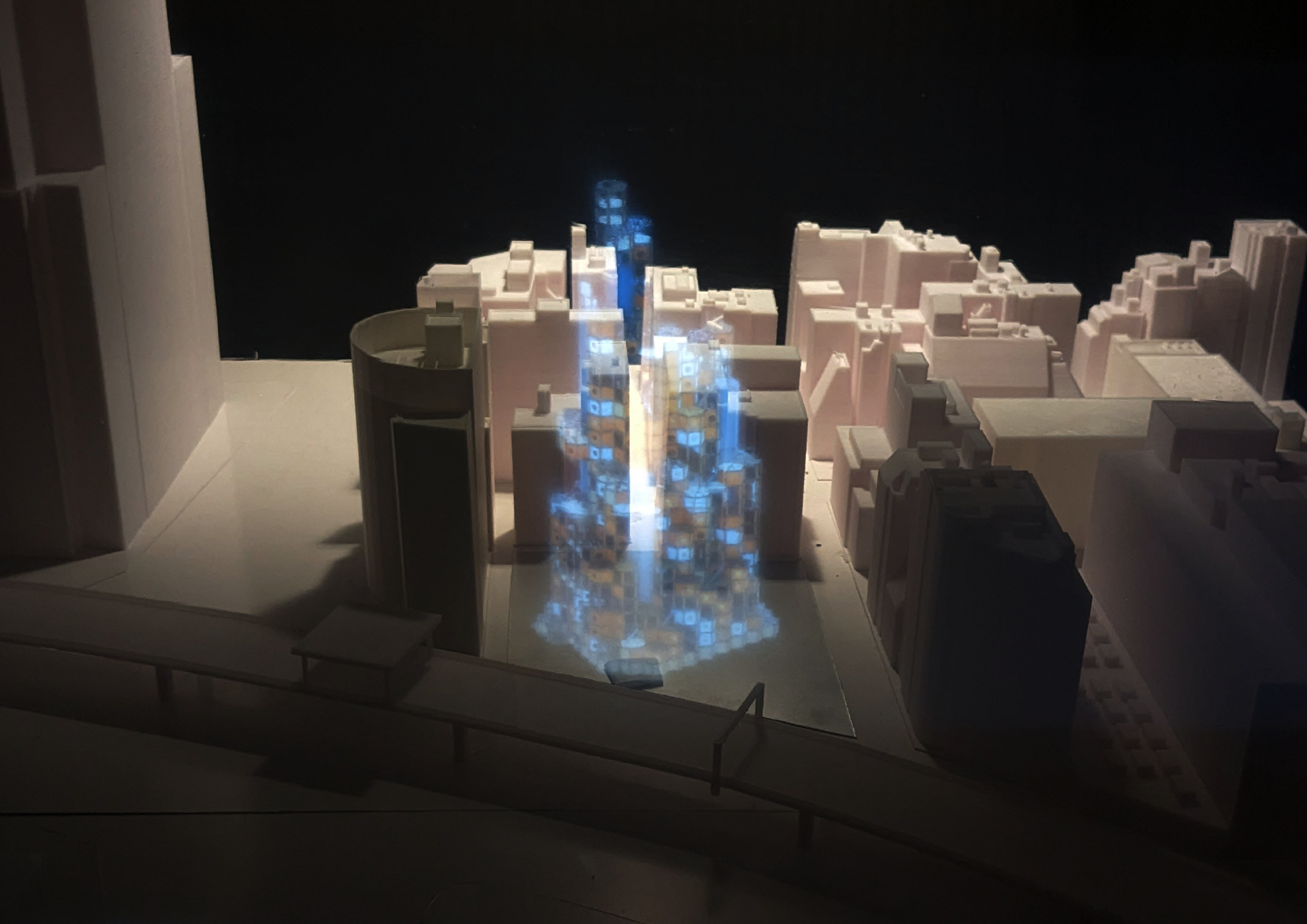Transformers Colony -ポストヒューマニズムの新陳代謝システムの提案- Transformers Colony -The Metabolic System for Posthumanism-
大本和尚 大本和尚 (Tomohisa Omoto)
作品コンセプト
- JP
- EN
近年、情報技術の発展は目覚ましく、ポストヒューマニズムの時代を加速させている。人とロボットとAIが共生する社会が現実となりえる一方、その情報処理能力と可動性を活かしきれず、活動基盤となる空間が彼らの要求性能を満たせないという課題が発生する。
また昨今のAIの進化により、AIと人間が共存する共同体では人間的特質の重要性が高まる。AIの進化は、人間の感情、創造性、直観などの独自の特性を補完し、強化する役割を果たしており、これらの要素がAIとの相互作用におけるコミュニケーションや理解を深める上で不可欠である。
その2つの課題に対し、AIとロボットと人間の3つの主体が構成する共同体の基盤となりえる空間の再考を行う。建築がロボットと人という主体によって新陳代謝し、その上位システムにAIを導入する。その結果、建築だけではなく人と人工物の関係性や人そのものも新陳代謝していく空間を提示することが目的である。このアプローチにより、ポストヒューマニズムの持続可能な未来を構築する。
In recent years, the development of information technology has been remarkable, accelerating the era of post-humanism. A society where humans, robots, and AI coexist is becoming a reality. However, challenges arise when their computational capabilities and mobility are not fully utilized, and the spaces that serve as their operational bases fail to meet their performance demands.
Furthermore, the recent evolution of AI has increased the importance of human qualities in communities where AI and humans coexist. The evolution of AI complements and enhances human emotions, creativity, and intuition, qualities that are essential in deepening communication and understanding in interactions with AI.
In response to these two challenges, we reconsider the space that can serve as the foundation for a community composed of three main entities: AI, robots, and humans. Architecture is metabolized by the entities of humans and robots, introducing AI into its higher-order system. The objective is to present a space where not only the architecture but also the relationship between humans and artifacts, and humans themselves, are metabolized. Through this approach, we aim to construct a sustainable future in the era of post-humanism.

